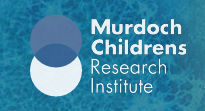Infigratinib Shows Promise as Oral Treatment for Achondroplasia in Children
• A Phase II study reveals that infigratinib, an oral medication, significantly increases height in children with achondroplasia, the most common form of dwarfism.
• The study demonstrated that infigratinib boosts bone growth and enhances the quality of life for children aged 3-11 years with achondroplasia.
• Infigratinib increased the rate of growth by 2.5 cm per year over 18 months, improving overall height and body segment ratio, with only minor side effects.
• This oral treatment could offer a practical alternative to daily injections, especially for children who cannot tolerate them or in regions where injections are less feasible.
Infigratinib Shows Promise in Phase 2 Trial for Achondroplasia
• Infigratinib, an oral FGFR3 inhibitor, significantly increased annualized height velocity in children with achondroplasia in a Phase 2 trial.
• The study demonstrated a mean change from baseline in AHV of +2.50 cm/year at Month 18 with a daily dose of 0.25 mg/kg (P=0.001).
• Infigratinib was well-tolerated, with no serious adverse events or negative changes in bone mineral density observed during the trial.
• BridgeBio's PROPEL 3, a global Phase 3 registrational study of infigratinib, is ongoing, with enrollment completion anticipated by the end of 2024.
Infigratinib Shows Promise in Phase 2 Trial for Children with Achondroplasia
• Infigratinib, an oral FGFR3 inhibitor, demonstrated a statistically significant increase in annualized height velocity (AHV) of +2.50 cm/year in children with achondroplasia at 0.25mg/kg daily.
• The PROPEL 2 trial also showed a mean change from baseline in height Z-score of +0.54 and improved body proportionality at Month 18.
• Infigratinib was well-tolerated, with no serious adverse events, changes in bone age, or negative effects on bone mineral density reported during the study.
• Phase 3 registrational study PROPEL 3 is ongoing, with enrollment completion anticipated by the end of 2024, further evaluating infigratinib's efficacy.
Prota Therapeutics' Peanut Allergy Therapy Shows Lasting Remission Benefits
• Prota Therapeutics' PRT120 and PRT100 peanut oral immunotherapies demonstrate sustained benefits two years post-treatment, including improved quality of life.
• A study showed participants achieving remission experienced fewer allergic reactions and no moderate or severe reactions, or need for epinephrine.
• Remission, compared to desensitization alone, leads to substantial improvements in health-related quality of life for peanut allergy sufferers.
• The PPOIT-003LT study validates remission as a superior outcome, reducing reaction severity and enhancing overall well-being for treated children.
© Copyright 2025. All Rights Reserved by MedPath

